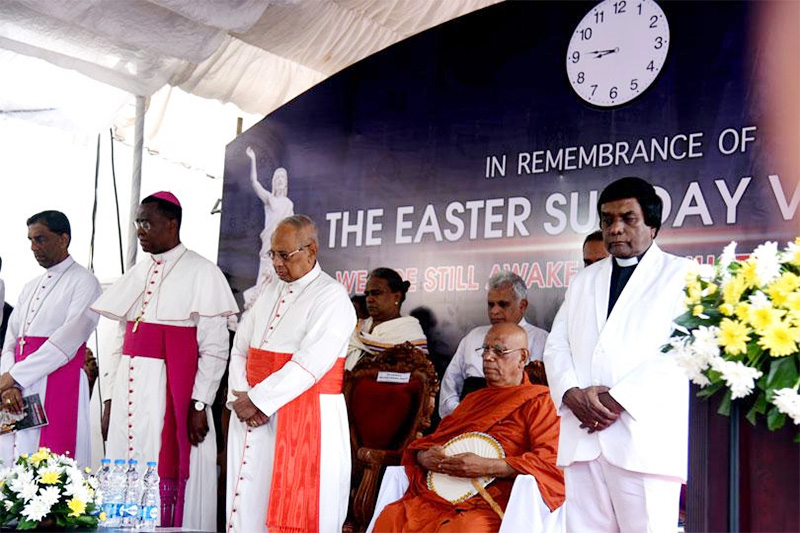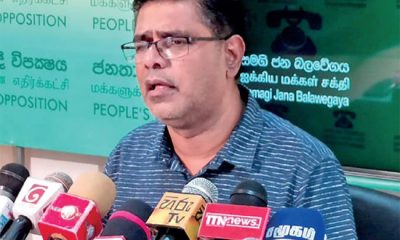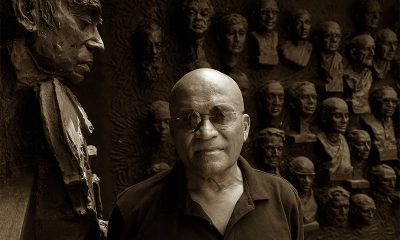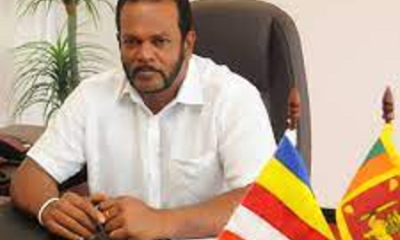Features
Global economic downturn could spur strident Far Rightism

If there is a marked spike in violence in the West and the world over linked to the Far Right, it ought to be only expected in view of the economic downturn that has overtaken the world in the wake of the COVID-19 pandemic. The Scandinavian countries have been seen as relatively free of such political blights thus far, but recent riots in Southern Sweden which were linked to the Far Right in that country ought to caution the observer on being overoptimistic about the comparative non-occurrence of these negative political tendencies in that part of Europe.
The riots in question were triggered by the burning of a copy of the Quran recently by Far Right activists in the southern Swedish city of Malmo. The event was to be attended by notorious anti-Muslim Danish politician Rasmus Paludan. The Swedish authorities, however, prevented the latter from arriving at the event from Den Mark in view of anticipated law and order problems.
Immigrant majority Malmo City, however, erupted in violent protests against the burning of the Muslim holy book subsequently. This is fresh proof of the continuing grave dangers of Far Rightism. It is relevant to note that even Den Mark has witnessed violence of this kind in the past.
However, one would be stating the obvious by saying that Far Rightism is a near world wide phenomenon. For example, it is rampant in South Asia, with Sri Lanka proving no exception, of course. It is found in some of its most disruptive and dangerous forms in even the most vibrant democracies of the West, including the US and Britain. In the latter, Far Rightism manifests itself in mainly white supremacist sentiment and anti-minority violence.
For example, white supremacist attitudes surged to the surface in the wake of the unrest which swept the US subsequent to the George Floyd killing. White Skinhead-initiated anti-migrant violence has time and again surfaced in Britain, its democratic credentials notwithstanding.
However, the economic setback suffered by the world in the wake of the COVID-19 contagion could set the stage for a strong resurgence of right wing-sourced anti-migrant, anti-minority violence the world over and the international community and democracies in particular will need to brace for this scourge. Economies of the world are shrinking fast and with this decline in growth will come a plethora of socio-political ills, including anti-minority violence and religious extremism.
 The latest global growth statistics formulated by some authorities speak for themselves: In the case of Asia, India, Japan and China are experiencing a growth decline of -23.9 per cent, -7.6 per cent and -3.2 per cent respectively. For the UK, France, Italy, Canada, Germany and the US the corresponding statistics are: -20.4, -13.8, -12.4, -12, -10.1 and -9.5.
The latest global growth statistics formulated by some authorities speak for themselves: In the case of Asia, India, Japan and China are experiencing a growth decline of -23.9 per cent, -7.6 per cent and -3.2 per cent respectively. For the UK, France, Italy, Canada, Germany and the US the corresponding statistics are: -20.4, -13.8, -12.4, -12, -10.1 and -9.5.
It will be a case of aiming for the biggest slice of the national economic cake. Extremist political opinion among majority communities in most of the mentioned countries are bound to see religious and ethnic minorities in their midst, for example, as threats to their economic survival amid the current pandemic. The minorities will be seen as getting in the way of their prosperity and well being by majority communities, since the economic cake is shrinking dangerously.
Thus will the stage be set for stepped-up Far Right atrocities against minority groups. Over the years this has been happening in some major countries of the West, which have been witness to a significant migrant presence, and one could only expect a marked uptick in this disquieting trend in the days ahead. As a matter of interest it needs to be mentioned that the exception taken by the political Right to the presence of East European migrants, in particular, in Britain proved a major factor in Britain’s decision to break away from the EU.
The civilized world is hard pressed to act fast in the face of this bleak outlook for everyone. Violence of any kind within states, if it goes unmanaged, would eventually lead to national disintegration. This is an undisputed lesson of history. Accordingly, states, wherever they may be, are obliged from now on to attach top most priority to national integration and social amity. In such programmes, racial and religious tolerance ought to figure prominently.
Fortunately for the world, notable democracies, such as Britain, have indicated to it as to how a pluralistic country could go about strengthening national integration. Britain has zero tolerance for hate speech, for instance, and those countries that are desirous of stemming the rot in the deteriorating communal relations field, could take a leaf from it. Those countries which are keen on strengthening race relations could also model their relevant legislation on Britain’s Race Relations Act. But it does not follow from the foregoing that Britain is not having its fair share of ethnicity-related problems.
However, it would be naive on the part of states to believe that Far Right-linked violence could be put down by law and order means alone. There could be some short term relief as a consequence of adopting these means but such comfort is usually short lived. The more sensible option is to adopt the democratic approach of making religious and ethnic tolerance a solid reality within states by winning hearts and minds. Peace brings peace. Violence brings increasing violence. These are the relevant home truths that states would do well to bear in mind.
Features
Justice does not require a mandate

by Jehan Perera
On April 21, the country passed the fifth year anniversary of the Easter Sunday bombing that took the lives of about 300 persons and injured and maimed many more. The bombers targeted Catholic and Christian churches on Easter Day, sacred to Christians, which were filled with devotees at the time of the attacks. The bombers had emerged out of the blue as it were, there were questions whether Sri Lanka had become a site of a global battle and uncertainty that others might strike again. For two months, the capital city of Colombo almost shut down as people lived in fear. The bombing also changed the course of national politics. It paved the way for nationalist politicians whose promise was the guarantee of national security and the rightful place of the ethnic and religious majority.
Today, the memory of those events has receded from the consciousness of most people. But the impact of the bombing has been lasting. The economic setback due to foreign investors and tourists giving Sri Lanka a wide berth was to pave the way to the economic bankruptcy due to the corruption and mis-management of those who won the elections that the country is yet to overcome. Equally lasting, and perhaps more destructive has been the erosion of trust in the present and past government leaderships in the face of its unwillingness to find the truth and hold to account those who planned the attacks and those who chose not to defend against the attacks even when forewarned by foreign and local intelligence services. There is a widespread feeling in the country today that the wrongdoers are being protected.
The effort of the Catholic Church in the country to canonize those who died, to either elevate them to sainthood or martyrdom is an attempt to keep the issue of the mass killing alive both nationally and internationally. There have been international precedents for this. Examples are the Vietnamese Martyrs or the Japanese Martyrs of the 16th century which became internationalised through the Catholic Church. Cardinal Malcolm Ranjith said the Church will take the first step to collect signatures from the Catholic community countrywide to be sent for to Rome for Papal recognition. “Because once we declare them as ‘Heroes of faith’, the international community will come to recognise them more and more and it will become an international matter.” Cardinal Malcolm Ranjith has been resolute in being up there in front, voicing the sentiments of the bereaved families for justice in public protest on the road or by lobbying with national leaders and the international community.
WITHHOLDING INFORMATION
There have been several official inquiries into the trail of events that led to the Easter bombings. A couple of those who held senior positions in the security establishment even had to go to prison for a while and others have been subjected to heavy fines for their dereliction of duties. But still the sense that there has been a cover up is strong. The passage of time has brought forth more evidence of a cover up. There are objective facts that can be verified and cannot be hidden. Members of the intelligence community and the police in Sri Lanka whose investigative capacities have been seen on innumerable occasions would surely have evidence of what truly happened. It is therefore only a matter of time when the truth comes to light.
It was only two weeks ago that the Catholic Church was provided the full report of the presidential commission that investigated the bombing. The report they had previously been given, and that too after a long delay had an estimated 1500 pages removed from it. The next phase of the quest for justice will need to await a new government. The direction to ascertain the truth does not require a people’s mandate in the same way that deciding on a new economic direction might require. Justice is fundamentally concerned with the fair and equitable treatment that is not dependent upon popular opinion or electoral mandates but is grounded in universal ethical norms and legal standards. The reason that a new government is needed is when those in the government have vested interests in not disclosing the truth and not rocking the boat they are in.
Following his visit to the police Criminal Investigation Department for questioning, Fr Cyril Gamini Fernando, the spokesperson of the Archdiocese of Colombo openly said uncovering the truth behind the Easter Sunday attacks depends on a change in the political system. He mentioned that he has appeared before the CID on multiple occasions and has provided detailed statements. Despite this, there was a lack of a substantial investigation based on the information he has shared. He expressed scepticism about the government’s commitment to uncovering the masterminds behind the Easter Sunday attacks, which led to his conclusion about the need for a change in the political system.
NEW GOVERNMENT
The events of Easter 2019 are sharpest in the memory of the Christian community in Colombo and Batticaloa where the churches were bombed. At the same time, it needs to be kept in mind that the loss of life that took place that day is dwarfed by the events that took place elsewhere and at other times. If the Christians and their leadership keep on remembering and not giving up on the quest for justice, it can be imagined that those who have lost even more would also be determined to remember and not give up on their quest for justice. In May 2009, the three decade long internal war ended very bloodily on the battlefields of the north with the defeat of the LTTE and killing of its leaders in circumstances that are not fully known to most people to this day.
The events of May 2009 are not the only ones in which mass killings took place. Twenty years earlier in 1989, the JVP was defeated and its leadership was also killed. There was an orgy of violence in which tens of thousands of people were killed. As in the case of the LTTE, the decimation of the JVP took place in circumstances that were kept beneath the surface and in which the killings took place not only on one side but on multiple sides. Many novels have been written about those periods of large scale violence, about the torments of the victims and their families and the ghouls who put them to death. This is the reason why those who seek to promote the reconciliation process urge that there should be a process of transitional justice, in which truth, accountability, reparation and a political solution are brought to bear.
Last week the National NGO Secretariat organised a meeting between civil society organisations engaged in the national reconciliation process and government mechanisms. There was a spirit of positive engagement and problem solving in the discussions with the Office on Missing Persons, the Office for Reparations, the Office for National Unity and Reconciliation and the interim secretariat for the Commission on Truth, Unity and Reconciliation that is being formed. The draft of the Truth Commission law does not yet deal with issues of the JVP period and the Easter bombing which are lacunas. There is a need for a system change that the Catholic Church and Fr Fernando have openly called for, which would come through elections to get rid of the blocks to the quest for justice and the national reconciliation process.
Features
Five Hindrances in Buddhism

 by Dr. Justice Chandradasa Nanayakkara
by Dr. Justice Chandradasa Nanayakkara
Nyanaponika Thera in his Buddhist writings states: “unshakable deliverance of the mind is the highest goal in Buddha’s doctrine. Here deliverance means; the freeing of the the mind from all limitations, fetters, and bonds that tie it to the Wheel of Suffering, to the Circle of Rebirth. It means cleansing the mind of all defilements that mar its purity; removing all obstructions that impede its progress from the mundane (lokiya) to the supermundane consciousness (lokuttara citta) that is, to Arahatship.
Life’s spiritual path is paved with many hindrances and obstacles. Out of those many obstacles, Buddhism stresses five recurring hindrances (Nivaranas) that impede a person’s spiritual progress. They are (1) Sensual desires (Kamachanda) derived from gratification from the five senses of sight, sound, smell, taste, and physical sensation. (2), Ill will (Vyapada) feelings of hostility, resentment, hatred, and bitterness. (3), Sloth and Torpor (Thina Middha) halfhearted action with little or no effort or concentration (4), Restlessness and Worry (Uddachha Kukucha) inability to have a composed mind and focus one’s energy. (5), Skeptical Doubt or Indecision (vickiiccha) lack of conviction or trust in one’s abilities. These five hindrances are potent negative forces in the mind that make a person lose mindfulness, hinder his ability to see things as they are and become mentally focused and concentrated. Moreover, the five negative states of mind prevent a person from seeing clearly and making the right decisions and derail him from his spiritual path to liberation. These hindrances are forces of distraction encountered by a person engaged in meditative practice and his daily life. They prevent the development of concentration (Samadhi) which is a cornerstone of the path to liberation from suffering. It is only by constant and earnest efforts that the harmful influence of the five hindrances could be avoided. The Buddha using analogy stated that the mind with five mental hindrances is comparable to gold contaminated with five impurities such as iron, copper, tin, lead, and silver which make the gold not pliant, wieldy, or luminous but brittle and cannot be wrought well. But the mind that is free from such hindrances will be malleable wieldy, luminous, and pliant and be able to concentrate properly by eradicating mental impurities and attain wisdom. It is believed the five mental defilements (kileses) are not inherently wrong as they can provide opportunities for deeper insights into the nature of life’s suffering, compassion, and deliverance. The hindrances occur to a greater or lesser extent in every person.
The first hindrance, sensual desire is the craving derived from the gratification of our five senses: sight, sound, smell taste, and touch. It is normal for an average person to get tempted by alluring sensual objects. Lack of self-control results in the inevitable arising of passions. They arise from positive emotions associated with our senses but tend to cause us to lose track of our goals.
It is in the very nature of sensual desires that they can never be satisfied as the mind is constantly detecting objects that are coming in through our five senses. There is no end to the seeking of our enjoyment of pleasurable objects and their sensation. These sensual objects arise and disappear as do all other phenomena. Once you enjoy them you are left with the same unsatiated desires for more gratification. As soon as a person experiences one object of sensual delight rather than finding contentment and satisfaction from it, he becomes obsessed with new desires. A person who is obsessed with sensual pleasures assumes that happiness consists in submitting to the dictates of sensual desires but real happiness eludes him as craving for sensual pleasures becomes insatiable. This drives him to ceaseless pursuit of new sensual gratification. When the mind is attached to sensory experience it gives rise to too many attachments in the world and it becomes completely entangled in worldly ways and you become so trapped in delusion that you cannot see things in their true perspective. Attachments to sensual objects increase our greed, clinging and grasping, and keep us bound to the wheel of samsara. Although the five hindrances cannot be eradicated before achieving stages of Awakening they can be lessened to a great extent through mindfulness. The misconception that buddhism gives an unfair valuation to sensual pleasures, to the neglect of their positive aspects is not sustainable as the Buddha never dismissed sensual desires outright but admitted that sensuality can give a person a certain measure of happiness and satisfaction. But he declared that happiness based purely on sensuality is ephemeral and shortlived. It is the constant pursuit of sensory pleasures that bars inner peace, and mindfulness distracting us from our spiritual goals. that Buddhism does not approve of. Seeking pleasure is natural but excessive craving can tether us to the wheel of samsara preventing deeper spiritual fulfillment. When that happens the hope of reaching the end of suffering would become dismal until you overcome the sensual desires that cloud your mind.
Antidotes to sensual desires include renunciation turning away from distracting stimuli, and investing the experience of desire with mindfulness that clouds our mind and prevents us from seeing the true nature of things. Similarly, when we are overcome by sensual desires we should reflect and meditate on the true nature of our life and its ephemerality, and one day we are all going to end up as decaying corpses. This kind of reflection weakens lustful thinking as we realize the imminence of our death (Joseph Goldstein). Regarding sensual desires arising out of taste, a person is expected to indulge in moderate consumption of food solely for maintaining and sustaining the body not for enjoyment, beautifying, or adorning the body. Association and maintaining friendships with wise and noble friends also tend to mitigate sensual desires.
The second hindrance ill-will is characterised by negative emotion towards a person, object, or situation. It refers to feelings of resentment, anger, and hostility. it is an unwholesome mental state that wishes harm and misfortune on others. It clouds our judgment, prevents us from looking at situations from their true perspective, and hampers our ability to feel compassion and empathy. A specific way of dealing with ill will when it is overpowering is to generate loving thoughts, wishing happiness, and love to all beings everywhere and the specific person towards whom you direct your anger. Although, initially, you may find it difficult to cultivate those wholesome thoughts eventually anger is bound to dissipate and the mind becomes calm and collected. Another insightful way of dealing with anger and aversion is to reflect upon the law of karma and understand that we are all heirs to our actions. Kamma is an immutable law of cause and effect and we cannot avoid the consequences. The underlying intentions behind our actions determine the nature of their results.
The third hindrance is sloth and torpor are a compound word that combines both the emotional and somatic aspects of excessively low energy. It is a morbid state of the mind that refers to physical laxity, mental dullness, and callous indifference. It can manifest as sleepiness, a lack of motivation, and depression. It should not be understood as bodily drowsiness, because Arahhants who have conquered these two states, also experience bodily fatigue. (Narada). An antidote for strong sloth and torpor would be refreshing the body by giving it a rest so that our mind becomes clear-headed and focused. Engaging in walking meditation and vigorous bodily movement will also act as an antidote.
The fourth hindrance is restlessness and worry. It is another impediment to spiritual progress. Here the restless mind is likened to flustered bees in a shaken hive so that the mind cannot concentrate and focus on wholesome things. Moreover, an agitated and flustered mind prevents calmness and blocks the spiritual path. Similarly, worry is just as detrimental. People who worry over one thing and another, over things done or left undone, and over misfortunes, are unable to have peace of mind. These unwholesome states of mind prevent concentration.
The fifth and last hindrance is skeptical doubt. It refers to a loss of trust and faith in Dhamma. There are two types of doubt. An unhealthy and unwholesome doubt that undermines a person’s spiritual practice, and a healthy doubt that informs the spiritual practice. A person entertaining healthy doubt should seek intelligent clarification and investigation of Dhamma as Buddha expounded in Kalama Sutta, while a person nursing unhealthy doubt is so prejudiced and cannot be convinced by any reasoning. A person engaged in meditative practice sometimes tends to evaluate his practice pondering constantly whether any benefit would accrue to him by it. Any doubt and lack of confidence entertained by a person in this regard is bound to impede his spiritual practice. When a doubt arises in a person, it is important to recognise it as a doubt and realise that it is constantly changing. Another way to resolve a doubt concerning meditative practice is to seek clarification from a knowledgeable teacher. Any doubt entertained about any person or matter can evidence itself in a person’s behaviour and conduct, as a result of his unsettled state of mind.
In brief, to subdue the hindrances a person has to develop five psychic factors known as jhana. Sense desire is subdued by ekagatta one-pointedness or unification of the mind. Ill will by joy (piti) sloth and torpor by applied thought (vittakka) restlessness and worry by happiness (sukha) and doubt by sustained thought (vicara) Psychic factors raise a meditative person from lower to higher levels of mental purity (Piyadassi).
Features
Their name says it all…

 Brightening up the music scene is what this seven-piece outfit has in mind…as Luminosity.
Brightening up the music scene is what this seven-piece outfit has in mind…as Luminosity.
They became a reality three years ago and have been quite active, since then, keeping music lovers entertained with their versatility.
Led and managed by Bianka Wijewardane, a singer, counting 15 years of experience, the band has been seen in action at several top events, during their short career as Luminosity.
Says Bianka: “We were the first band to play at the Marine Drive Western Breeze Food Festival, organized by the Tourist Board, and we were also the opening band for Sun FM Slow Flow Live.”
As a solo artiste, before the formation of Luminosity, Bianka went on foreign assignments with several leading bands in Colombo, including Aubrey Weiman and Heat, and performed with Wildfire, as well.

Bianka Wijewardane: Responsible for Luminosity become a
reality (Pic courtesy Chanaka Gayan Alwis Photography)
“I need to say I’m very grateful to the late Aubrey, and Derek, of Wildfire, for guiding me at the beginning of my career.”Bianka has travelled to the Middle East multiple times as a solo artiste.
She went on to say she performs absolutely live on stage.
“I never use tracks. I do it absolutely live, with the band in attendance.”
Right now, she and Luminosity are working on an original and she also has plans to release two of her solo efforts.
On the 30th of last month, Luminosity was featured at the concert ‘Ispirithale’, along with the band Doctor.
They also do the ColomBar and the Taphouse scene, and were featured at the members’ nights at BRC and Otters, the Spring Fest, in Nuwara Eliya, and were seen at the Kurumba tent, during the Joe-Pete cricket encounter, having great fun, backing JAYASRI.
Luminosity is made up of Geethika Lakshan (drums), Vishan Hettiarachchi (keyboards), Nuwan Tharanga (bass), Vilan Olitha (lead guitar), Sachith Ishan Rajapaksha (percussion), Oniesh Demelo (lead vocals) and Bianka Wijewardena (leader and vocals).
Bianka says she wants to make it big in the music scene as a female vocalist.
“I do perform as a solo artiste, whenever the opportunity comes my way, but I’m very keen to pursue a solo career…full time.
“Of course, Luminosity will be there, doing their own thing, and they would also back me, as a solo artiste, when the need arises.
“They are a very versatile outfit and are excellent at both eastern and western music.”

Fun at the Joe-Pete cricket encounter
-

 Business2 days ago
Business2 days agoCEAT Kelani launches three new radial tyre variants in ‘Orion Brawo’ range
-

 Business6 days ago
Business6 days agoSOEs seen as failing SL’s ordinary citizens
-

 Midweek Review6 days ago
Midweek Review6 days agoBetween abstraction and empathy in Sarath Chandrajeewa’s visual paraphrases
-

 Business4 days ago
Business4 days agoDialog-Airtel Lanka merger comes centre stage
-

 Business6 days ago
Business6 days agoSri Lanka Tourism concludes another round of Roadshows in Australia
-

 Latest News7 days ago
Latest News7 days agoFormer Member of Parliament Palitha Thewarapperuma passes away
-

 Business4 days ago
Business4 days agoSLFEA appoints JAT as a Facilitation Partner for training painters to provide overseas employment opportunities
-

 Business2 days ago
Business2 days agoHayleys Fabric celebrates triple triumph at ISPO Textrends Spring/Summer 2026




































